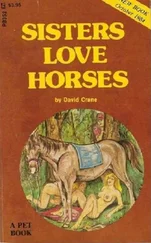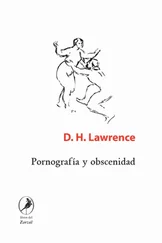David Lawrence - Women in Love
Здесь есть возможность читать онлайн «David Lawrence - Women in Love» весь текст электронной книги совершенно бесплатно (целиком полную версию без сокращений). В некоторых случаях можно слушать аудио, скачать через торрент в формате fb2 и присутствует краткое содержание. Год выпуска: 2003, Жанр: Классическая проза, Современные любовные романы, на английском языке. Описание произведения, (предисловие) а так же отзывы посетителей доступны на портале библиотеки ЛибКат.
- Название:Women in Love
- Автор:
- Жанр:
- Год:2003
- ISBN:нет данных
- Рейтинг книги:3 / 5. Голосов: 1
-
Избранное:Добавить в избранное
- Отзывы:
-
Ваша оценка:
- 60
- 1
- 2
- 3
- 4
- 5
Women in Love: краткое содержание, описание и аннотация
Предлагаем к чтению аннотацию, описание, краткое содержание или предисловие (зависит от того, что написал сам автор книги «Women in Love»). Если вы не нашли необходимую информацию о книге — напишите в комментариях, мы постараемся отыскать её.
Women in Love — читать онлайн бесплатно полную книгу (весь текст) целиком
Ниже представлен текст книги, разбитый по страницам. Система сохранения места последней прочитанной страницы, позволяет с удобством читать онлайн бесплатно книгу «Women in Love», без необходимости каждый раз заново искать на чём Вы остановились. Поставьте закладку, и сможете в любой момент перейти на страницу, на которой закончили чтение.
Интервал:
Закладка:
'I will go away the day after tomorrow,' she said.
She only did not want Gerald to think that she was afraid of him, that she was running away because she was afraid of him. She was not afraid of him, fundamentally. She knew it was her safeguard to avoid his physical violence. But even physically she was not afraid of him. She wanted to prove it to him. When she had proved it, that, whatever he was, she was not afraid of him; when she had proved THAT, she could leave him forever. But meanwhile the fight between them, terrible as she knew it to be, was inconclusive. And she wanted to be confident in herself. However many terrors she might have, she would be unafraid, uncowed by him. He could never cow her, nor dominate her, nor have any right over her; this she would maintain until she had proved it. Once it was proved, she was free of him forever.
But she had not proved it yet, neither to him nor to herself. And this was what still bound her to him. She was bound to him, she could not live beyond him. She sat up in bed, closely wrapped up, for many hours, thinking endlessly to herself. It was as if she would never have done weaving the great provision of her thoughts.
'It isn't as if he really loved me,' she said to herself. 'He doesn't. Every woman he comes across he wants to make her in love with him. He doesn't even know that he is doing it. But there he is, before every woman he unfurls his male attractiveness, displays his great desirability, he tries to make every woman think how wonderful it would be to have him for a lover. His very ignoring of the women is part of the game. He is never UNCONSCIOUS of them. He should have been a cockerel, so he could strut before fifty females, all his subjects. But really, his Don Juan does NOT interest me. I could play Dona Juanita a million times better than he plays Juan. He bores me, you know. His maleness bores me. Nothing is so boring, so inherently stupid and stupidly conceited. Really, the fathomless conceit of these men, it is ridiculous—the little strutters.
'They are all alike. Look at Birkin. Built out of the limitation of conceit they are, and nothing else. Really, nothing but their ridiculous limitation and intrinsic insignificance could make them so conceited.
'As for Loerke, there is a thousand times more in him than in a Gerald. Gerald is so limited, there is a dead end to him. He would grind on at the old mills forever. And really, there is no corn between the millstones any more. They grind on and on, when there is nothing to grind—saying the same things, believing the same things, acting the same things. Oh, my God, it would wear out the patience of a stone.
'I don't worship Loerke, but at any rate, he is a free individual. He is not stiff with conceit of his own maleness. He is not grinding dutifully at the old mills. Oh God, when I think of Gerald, and his work—those offices at Beldover, and the mines—it makes my heart sick. What HAVE I to do with it—and him thinking he can be a lover to a woman! One might as well ask it of a self-satisfied lamp-post. These men, with their eternal jobs—and their eternal mills of God that keep on grinding at nothing! It is too boring, just boring. However did I come to take him seriously at all!
'At least in Dresden, one will have one's back to it all. And there will be amusing things to do. It will be amusing to go to these eurythmic displays, and the German opera, the German theatre. It WILL be amusing to take part in German Bohemian life. And Loerke is an artist, he is a free individual. One will escape from so much, that is the chief thing, escape so much hideous boring repetition of vulgar actions, vulgar phrases, vulgar postures. I don't delude myself that I shall find an elixir of life in Dresden. I know I shan't. But I shall get away from people who have their own homes and their own children and their own acquaintances and their own this and their own that. I shall be among people who DON'T own things and who HAVEN'T got a home and a domestic servant in the background, who haven't got a standing and a status and a degree and a circle of friends of the same. Oh God, the wheels within wheels of people, it makes one's head tick like a clock, with a very madness of dead mechanical monotony and meaninglessness. How I HATE life, how I hate it. How I hate the Geralds, that they can offer one nothing else.
'Shortlands!—Heavens! Think of living there, one week, then the next, and THEN THE THIRD—'
'No, I won't think of it—it is too much.'
And she broke off, really terrified, really unable to bear any more.
The thought of the mechanical succession of day following day, day following day, AD INFINITUM, was one of the things that made her heart palpitate with a real approach of madness. The terrible bondage of this tick-tack of time, this twitching of the hands of the clock, this eternal repetition of hours and days—oh God, it was too awful to contemplate. And there was no escape from it, no escape.
She almost wished Gerald were with her to save her from the terror of her own thoughts. Oh, how she suffered, lying there alone, confronted by the terrible clock, with its eternal tick-tack. All life, all life resolved itself into this: tick-tack, tick-tack, tick-tack; then the striking of the hour; then the tick-tack, tick-tack, and the twitching of the clock-fingers.
Gerald could not save her from it. He, his body, his motion, his life—it was the same ticking, the same twitching across the dial, a horrible mechanical twitching forward over the face of the hours. What were his kisses, his embraces. She could hear their tick-tack, tick-tack.
Ha—ha—she laughed to herself, so frightened that she was trying to laugh it off—ha—ha, how maddening it was, to be sure, to be sure!
Then, with a fleeting self-conscious motion, she wondered if she would be very much surprised, on rising in the morning, to realise that her hair had turned white. She had FELT it turning white so often, under the intolerable burden of her thoughts, und her sensations. Yet there it remained, brown as ever, and there she was herself, looking a picture of health.
Perhaps she was healthy. Perhaps it was only her unabateable health that left her so exposed to the truth. If she were sickly she would have her illusions, imaginations. As it was, there was no escape. She must always see and know and never escape. She could never escape. There she was, placed before the clock-face of life. And if she turned round as in a railway station, to look at the bookstall, still she could see, with her very spine, she could see the clock, always the great white clock-face. In vain she fluttered the leaves of books, or made statuettes in clay. She knew she was not REALLY reading. She was not REALLY working. She was watching the fingers twitch across the eternal, mechanical, monotonous clock-face of time. She never really lived, she only watched. Indeed, she was like a little, twelve-hour clock, vis-a-vis with the enormous clock of eternity—there she was, like Dignity and Impudence, or Impudence and Dignity.
The picture pleased her. Didn't her face really look like a clock dial—rather roundish and often pale, and impassive. She would have got up to look, in the mirror, but the thought of the sight of her own face, that was like a twelve-hour clock-dial, filled her with such deep terror, that she hastened to think of something else.
Oh, why wasn't somebody kind to her? Why wasn't there somebody who would take her in their arms, and hold her to their breast, and give her rest, pure, deep, healing rest. Oh, why wasn't there somebody to take her in their arms and fold her safe and perfect, for sleep. She wanted so much this perfect enfolded sleep. She lay always so unsheathed in sleep. She would lie always unsheathed in sleep, unrelieved, unsaved. Oh, how could she bear it, this endless unrelief, this eternal unrelief.
Читать дальшеИнтервал:
Закладка:
Похожие книги на «Women in Love»
Представляем Вашему вниманию похожие книги на «Women in Love» списком для выбора. Мы отобрали схожую по названию и смыслу литературу в надежде предоставить читателям больше вариантов отыскать новые, интересные, ещё непрочитанные произведения.
Обсуждение, отзывы о книге «Women in Love» и просто собственные мнения читателей. Оставьте ваши комментарии, напишите, что Вы думаете о произведении, его смысле или главных героях. Укажите что конкретно понравилось, а что нет, и почему Вы так считаете.











